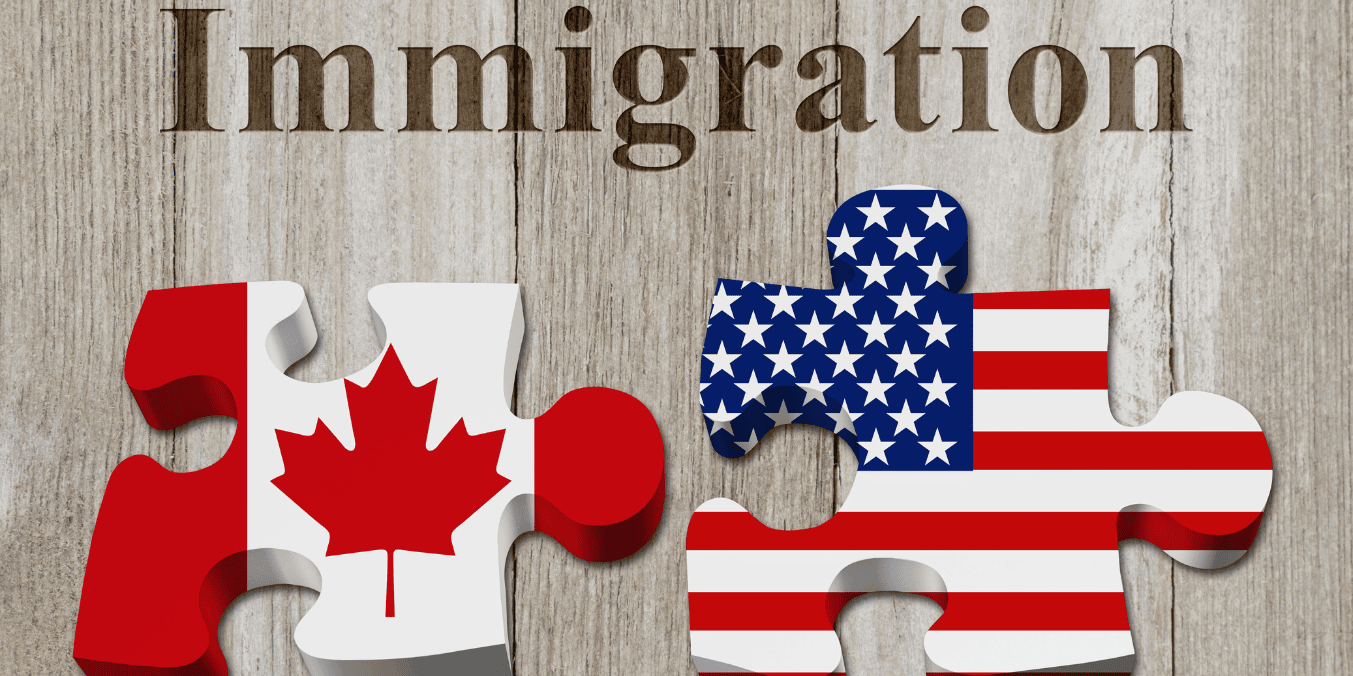With Donald Trump re-elected as U.S. President, the effects on Canada’s economy, immigration policies, and diplomatic relations are under intense scrutiny. Trump’s renewed focus on “America First” policies, strict immigration regulations, and support for traditional energy sources may lead Canada to navigate its relationship with its southern neighbor differently. Here’s an in-depth look at how Trump’s policies could affect Canada’s approach to trade, immigration, and economic relations.
Canada’s Immigration System and Growing Interest from Americans
Trump’s administration reinstates stringent U.S. immigration policies, prompting many Americans to consider moving to Canada. For Americans seeking greater stability and opportunity, immigration Canada has become a key pathway. Unlike the restrictive U.S. policies, Canada’s open and welcoming approach makes it an attractive destination, especially for skilled workers, entrepreneurs, and students.
Canada’s Express Entry system offers a streamlined path to residency for skilled professionals through a merit-based ranking system. Eligible candidates are evaluated on factors like age, education, work experience, and language proficiency, with high-scoring candidates invited to apply for permanent residency. Immigration Canada offers processing times as short as six months for qualified individuals, adding to its appeal for American professionals looking for quick and efficient migration options.
For entrepreneurs seeking immigration options in Canada, the Start-Up Visa (SUV) program provides a unique pathway to permanent residency. This program especially attracts those in tech and innovation sectors who seek Canadian investor support to launch their ventures. Another route under immigration Canada is the work permits available through the Canada-United States-Mexico Agreement (CUSMA). Through CUSMA, Americans in certain professions, such as engineering and technology, can access work permits without requiring a Labour Market Impact Assessment (LMIA), allowing easier access for qualified Americans looking to work in Canada.
With Trump’s tightened immigration controls in the U.S., the contrast between American and Canadian immigration policies is stark, with immigration Canada positioned as a favorable alternative for many. As Trump’s policies continue to shape the U.S. landscape, Canada’s pathways may see increased demand.
Trade and Economic Relations Between Canada and the U.S.
Canada’s trade relationship with the United States is foundational to its economy. However, Trump’s “America First” economic policies are likely to result in new challenges for Canada. During his previous term, Trump imposed tariffs on Canadian goods like steel and aluminum, leading to higher costs for Canada’s manufacturing sector. If he reinstates similar tariffs, Canada’s economy could experience increased strain. This tension in U.S.-Canada relations highlights the importance of Canada’s efforts to diversify its trade partnerships, focusing more on Europe and Asia to reduce dependency on the U.S. and avoid potential economic vulnerabilities.
Currency fluctuations between the Canadian dollar and U.S. dollar further underscore the complexity of Canada’s economic situation. Volatile currency exchange rates can affect the prices of Canadian imports and exports, adding financial uncertainty to the Canadian market. As Canada seeks to strengthen economic ties beyond North America, it must be prepared for possible instability in its relationship with the U.S. under Trump’s policies.

Canadian Immigration Consultant
Let our expert team guide you through the complexities of immigrating to Canada. We provide personalized, step-by-step support to ensure a smooth and stress-free process.
Energy Policy and Environmental Commitments
Trump’s stance on energy, particularly his support for fossil fuel projects, could present significant challenges for Canada’s climate commitments. Trump has been a consistent advocate for the Keystone XL pipeline, a controversial project linking Alberta’s oil sands with U.S. refineries. Should Trump push for the pipeline’s approval, Canada will face a dilemma: balancing economic gains with environmental commitments. Canada’s climate policy aligns with global climate agreements, yet Trump’s approach to energy is likely to conflict with these commitments.
Beyond pipeline development, Canada must consider the broader environmental implications of Trump’s policies. His previous withdrawal from international climate agreements suggests that collaborative environmental efforts with Canada could become strained. This divergence in environmental priorities may impact Canada’s ability to achieve its climate goals, especially if projects like Keystone XL come under renewed U.S. advocacy.
Defense and NATO Relations
Canada and the United States have long-standing defense ties, particularly through NATO. Trump’s focus on increasing NATO funding by member nations could create added pressure on Canada. Trump has repeatedly called for NATO allies to meet a 2% GDP spending target, and Canada has historically spent less than this benchmark on defense. Increased defense spending could mean reallocating Canadian resources, affecting domestic priorities.
Moreover, Trump’s interests in the Arctic bring additional complexities to Canada’s defense strategies. The Arctic is increasingly important due to its rich natural resources, and both Canada and the U.S. have competing claims over certain areas. With Trump’s renewed focus on resource extraction, Canada may find itself compelled to reinforce its Arctic sovereignty. This situation could either provide opportunities for cooperation or create tension as each country seeks to secure its interests in the Arctic.
Cross-Border Security and Immigration Canada Policies
Trump’s focus on strict border security may also affect Canada’s policies and border operations. The heightened scrutiny at the Canada-U.S. border would likely impact the movement of people and goods. Increased inspections and security measures could cause significant delays, affecting Canadian businesses that rely on cross-border trade and travel.
With more stringent expectations for intelligence sharing, Canada’s approach to joint border security operations with the U.S. could face challenges. Although Canada has historically cooperated closely with the U.S., Trump’s hardline approach may push for stricter compliance with U.S. standards, potentially straining Canada’s own security protocols. As border security and immigration policies evolve, Canada’s trade, travel, and diplomatic relations may also be impacted.
Impact on Indigenous Rights and Cross-Border Projects
Trump’s energy policies, specifically his support for cross-border resource extraction projects, could impact Canada’s Indigenous communities. Many of Canada’s Indigenous territories span across the U.S.-Canada border, and any development or resource extraction project would need to account for Indigenous rights and consultations. As Trump’s administration supports projects like Keystone XL, Canada must carefully balance economic interests with its legal and moral commitments to Indigenous communities.
This situation could pose challenges for Canadian policy, as Canada is committed to inclusive consultation processes with Indigenous groups. Any significant cross-border project would require close diplomatic collaboration to address Indigenous concerns, especially if the U.S. pushes for accelerated development timelines that may overlook these rights.
Healthcare and Drug Pricing Implications
Healthcare policies under Trump could also affect Canada, particularly regarding drug pricing. Trump has previously pursued measures to allow U.S. imports of Canadian drugs to lower costs for American consumers. While this may benefit U.S. residents, Canada could experience shortages in its own drug supply, potentially impacting Canadian healthcare services. If drug demand increases from the U.S., Canada may need to implement protective measures to secure its domestic pharmaceutical supply and ensure its healthcare system remains unaffected by U.S. policy changes.
Social and Political Influence on Canadian Society
Trump’s political style and policies may also influence social dynamics within Canada. The rise of populist movements in the U.S. has seen some resonance in Canada, with groups emerging that are supportive of similar ideas. Trump’s re-election could bolster these Canadian movements, potentially impacting political discourse and introducing more polarized debates around immigration and social issues.
As Canadian society observes Trump’s re-election and its ripple effects, Canada may need to address shifts in public sentiment, particularly regarding immigration Canada policies and other social matters. By understanding these trends, Canadian leaders can help maintain social cohesion and balance political diversity within the country.
Canada’s Strategic Path Forward in Navigating Trump’s Policies
As Canada anticipates potential shifts under a re-elected Trump administration, resilience and adaptability will be essential. Canada may look to diversify its international alliances, reduce reliance on the U.S., and bolster its own trade and immigration policies to ensure stability. In particular, Canada’s commitment to sustained economic growth, environmental responsibility, and inclusive immigration policies will shape its strategic response to any changes in U.S. relations.
For those asking, is it easy to move to Canada from the USA, Canada offers a variety of immigration pathways, making it an accessible option for individuals and families seeking new opportunities.
How We Can Help
At Wild Mountain Immigration, we specialize in guiding employers through the evolving LMIA regulations. Our team of experienced immigration consultants can help you navigate the complexities of the Temporary Foreign Worker Program, find alternative solutions under the International Mobility Program, and assist with permanent residency applications for your employees.
Contact us today for personalized advice and support to ensure your business stays compliant with the new LMIA rules while retaining top foreign talent.
Julce
Julce is an expert content writer specializing in topics about Canada, adept at blending practical advice with engaging stories that capture Canadian life.
Canadian immigration
Learn about moving to Canada, the Express Entry immigration process, working in Canada, studying in Canada, and more.
January 12, 2025
Trudeau Steps Down – What’s in Store for Canada’s Immigration Policies?
Prime Minister Justin Trudeau has announced his resignation as the leader of the Liberal Party and…
December 11, 2024
New Immigration Pathways Canada 2025: What You Need to Know
Canada is introducing several new immigration pathways in 2025, offering exciting opportunities for…
December 10, 2024
Major Express Entry Changes Proposed to Address LMIA Fraud
Canada’s immigration system may soon undergo significant Express Entry changes, as Immigration…
Start Your Canadian Immigration Journey
Our experts make the process clear, stress-free, and successful, so you can move forward with confidence and focus on what matters most.

Get Started Today
"*" indicates required fields



